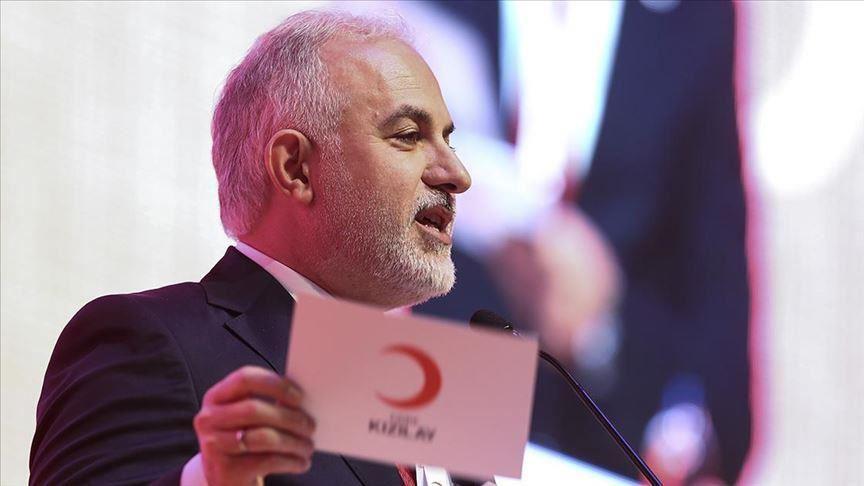Turkish Red Crescent worried over violence in Idlib
ANKARA-Anadolu Agency

The head of the Turkish Red Crescent (Kızılay) expressed grave concern May 31 over the strong likelihood that ongoing violence in Syria's Idlib province will cause more civilian casualties and further displacement.
Kerem Kınık pointed to the recent escalation of violence in Idlib and its widespread destructive impact on its more than 2.5 million residents, saying he was worried over its humanitarian impact.
He said in the past month alone, at least 160 people have been killed, thousands injured and more than 270,000 displaced.
Kınık recalled the obligations of parties to the armed conflict and the consequences of violations of international humanitarian law in the form of indiscriminate targeting or disproportionate use of force.
He also noted "with grave concern" the impact of damaged or destroyed medical facilities on the accessibility of those in need of medical services and its hindrance on the ability of medical staff to serve those sick and wounded.
He further recalled UN Security Council Resolutions 2139 and 2165 providing humanitarian space to UN agencies and their implementing partners for cross-border and cross-line assistance and called on the parties to the conflict to protect and facilitate the humanitarian staff and response.
Kınık hailed the efforts of "all humanitarian actors on the ground working amidst unbearable difficulties and with a high level of exposure to risks in order to save human life and dignity under inhumane conditions".
Describing the Turkish Red Crescent as "an impartial and neutral humanitarian actor active on the ground assisting millions in need across all accessible locations in Syria", he called on the international community to respect international humanitarian law and ensure their compliance with
principles and rules governing armed conflict.
He strongly urged all parties to the armed conflict to immediately stop their violations of international humanitarian law.
Kınık reminded the parties to the conflict that they will be held accountable for deliberate and indiscriminate targeting which results in the deaths of civilians and destruction of hospitals and clinics and civilian infrastructure.
Urging all parties to the conflict to establish hospitalized and neutral zones in order to more effectively protect civilians and those wounded and sick and to ensure their access to medical care, he highlighted the importance of a broader humanitarian space for humanitarian agencies on the
ground.
















